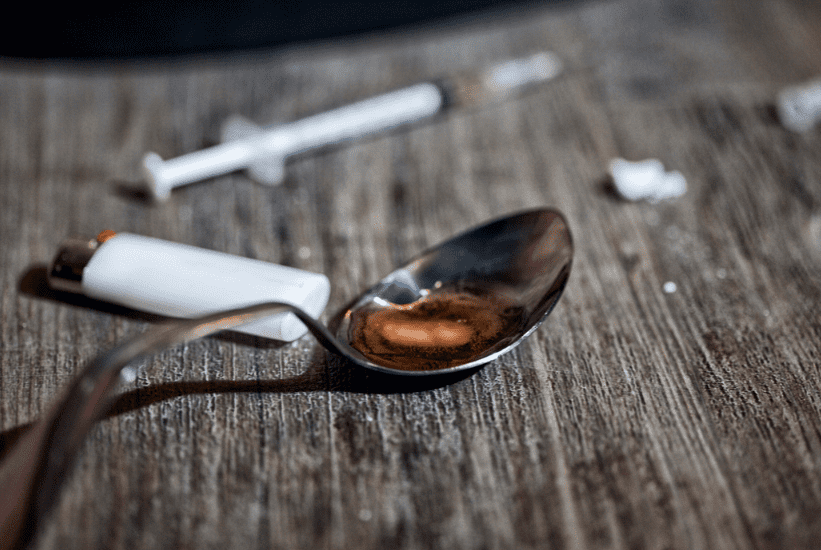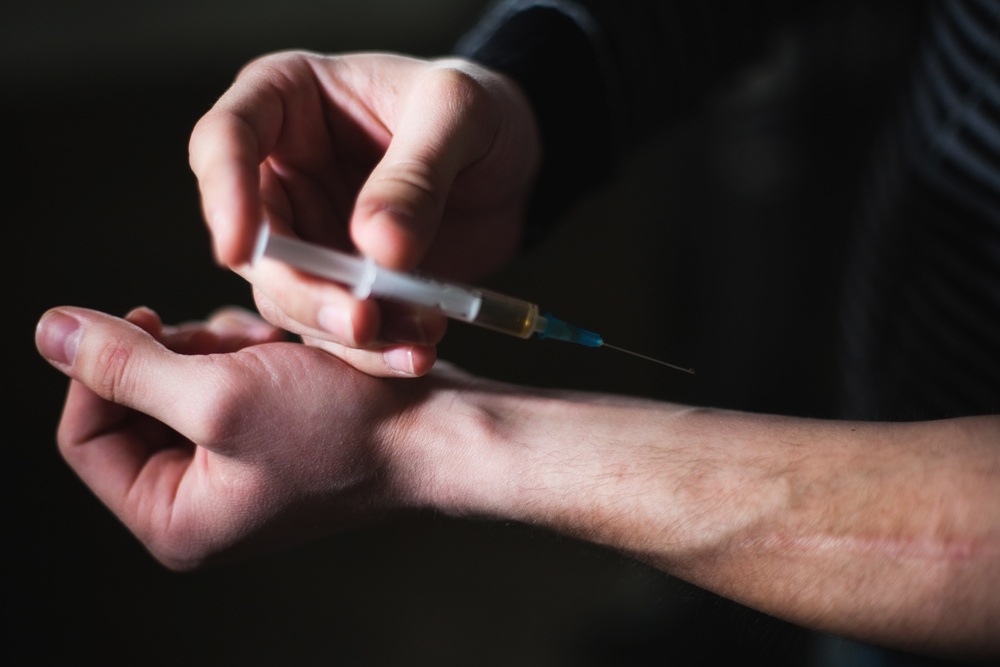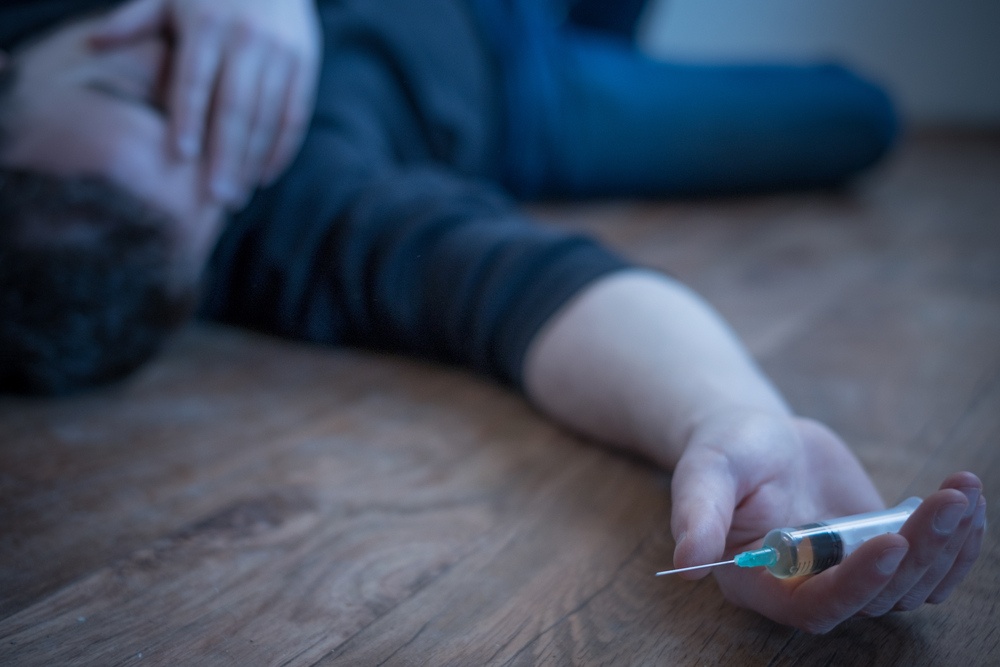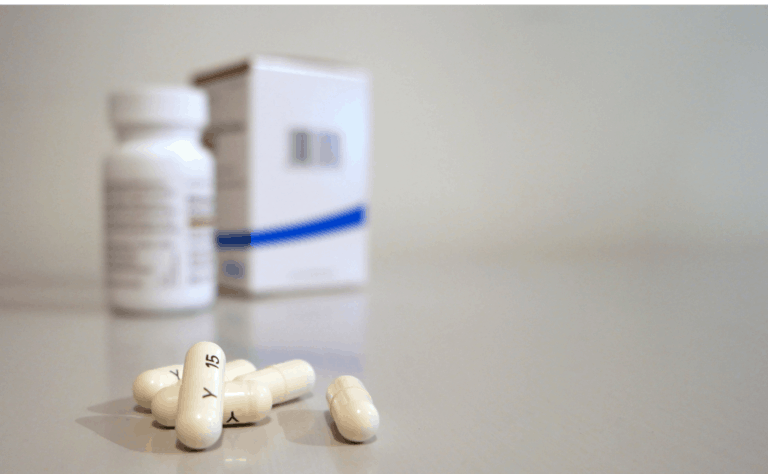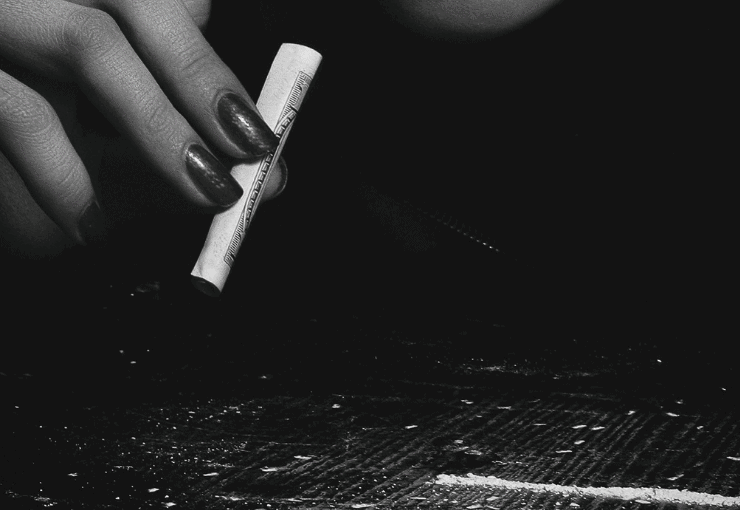Black tar heroin is a very addictive illegal drug produced by criminal drug trafficking groups; however, there is little chance that anyone taking it for the first time will become instantly hooked or addicted, despite its high potency and addiction potential. In this blog, we will discuss what black tar heroin is, the effects of this drug, how to identify abuse and addiction, and how to get yourself or a loved one help if struggling with this addiction.
It is highly unlikely that an individual would become addicted to black tar heroin after only one use. However, due to this drug’s potency and the likelihood of abuse, addiction can develop very quickly.
What is Black Tar Heroin?
Black tar heroin is an addictive opioid drug derived from morphine, an opioid substance produced from opium poppy plants grown in dry climates such as the Middle East. In the United States, black tar heroin is not available for purchase and is one of the few opioid substances that have no medical applications. Black tar heroin is a sticky, black, tar-like substance made from heroin that carries all of the health dangers associated with powdered heroin and even more dangers due to possible impurities. Like powdered heroin, black tar heroin is an addictive and unlawful opioid drug with a high potential for a deadly heroin overdose.
Heroin vs Black Tar Heroin
It’s important to know the differences between black tar heroin and powdered heroin. Black tar heroin is manufactured in a less careful manner than powdered heroin and is generally considered to be of lower quality. This, however, is just one of the various differences between the two forms.
Powdered heroin is distributed in large quantities as white, tan, or brown powder. Blocks of powder are subsequently broken down into grams or half grams of powder and sold in tiny bags or balloons. This powder can be inhaled, smoked, or liquefied and directly injected into the veins. Black tar heroin, on the other hand, is developed into a black or dark brown substance or solid bricks of black matter. It is marketed on the streets as little chunks that look like little lumps of coal. Impurities are thought to be left behind from the crude processing method, which leads to the substance’s dark or black color. It can also be smoked or liquefied and injected.
Historically, powdered heroin has been prevalent in the Eastern portion of the United States, whereas black tar heroin has been prevalent in the West due to its proximity to the Mexican border. In recent years, heroin and other drugs have been distributed much more easily thanks to technology and other factors. Because of the Mississippi River’s proximity to Mexico, powdered heroin was historically thought to be located on one side and black tar heroin on the other. That line has been blurred as black tar heroin continues to flow east of the Mississippi River.
What Does the Heroin High Feel Like?
When someone takes heroin for the first time, they often experience an intense rush of pleasure. An escape from reality or a form of self-medication are two of the possible consequences of a heroin high. Although a heroin high may appear to be an idyllic escape from reality, it is often accompanied by other experiences, such as a sense of well-being and security.
Heroin binds to opioid receptors in the brain, resulting in an increase of endorphins. This process alters feelings, thoughts, and experiences. Although most people believe that the heroin high is pleasant, some, but not all, might have negative experiences, this depends on the individual. Heroin is popular because it produces euphoria, especially if the user is not normally able to experience pleasure as a result of depression or other issues.
How Addictive is Black Tar Heroin?
Heroin is addictive because it targets the brain’s reward system by creating a neurochemical reaction in the body that dramatically increases the amount of dopamine sent to the brain. Due to the fact that dopamine is responsible for allowing your body to enjoy pleasure and satisfaction, heroin can be addictive as your body associates it with a boost in pleasure from a physiological standpoint. Your body will crave the drug more and more as a result of unnaturally high dopamine levels. As addiction progresses, not only does the frequency of drug use increase, but your tolerance also increases, resulting in an increased desire for the drug to satisfy its desired effect.
An individual’s body will become dependent on the surge of dopamine produced by heroin once they are exposed to it, making heroin one of the most addictive substances. Even though an individual may want to quit, withdrawal symptoms such as restlessness, insomnia, diarrhea, muscle pain, intense cravings, fever, and nausea may make it difficult. When you use heroin, your body becomes dependent on it to provide a rush of dopamine.
Can You Get Addicted to Black Tar Heroin After One Use?
No. It is not possible to become dependent on or addicted to heroin after one use. Physical dependence on a drug is when one requires the drug to function properly. Physical dependence on heroin takes time and repeated use to develop. Addiction, on the other hand, is compulsive behavior despite detrimental consequences. Both dependence and addiction cannot occur after taking heroin once, regardless of how they are defined.
What are the Effects of Heroin?
Due to its speedy entry into the brain and binding to opioid receptors on neurons in numerous regions, heroin primarily impacts regions related to pain and pleasure as well as controlling heart rate, sleeping, and breathing. Heroin addiction may present with a variety of signs and symptoms, depending on a person’s genetic makeup, level of heroin consumption, frequency of use, and physical dependence on the drug. The following are the most common side effects of heroin:
Short-Term Effects
- Dry mouth
- Euphoria
- Flushed skin
- Heaviness in extremities
- Itching
- Nausea
- Nodding off
- Slurred speech
- Lack of personal hygiene
- Neglecting responsibilities or obligations
- Agitation
- Isolation
Long-Term Effects
- Liver disease
- Kidney disease
- HIV
- Hepatitis B or C
- Blood clots
- Track marks
- Infections of the heart lining or heart valves
- Chronic pneumonia
- Respiratory depression
- Septicemia
- Seizures
- Collapsed veins
- Overdose
- Death
Can You Overdose on Black Tar Heroin?
Yes, it is highly possible to overdose on heroin, particularly if it has been mixed with fentanyl or is purer than normal, or if the heroin itself has a higher concentration of the drug. A heroin overdose occurs when there’s enough of the drug in the body to cause an adverse reaction or death. Someone who overdoses on heroin experiences respiratory system depression, which causes their breathing to slow down or stop entirely. Brain damage and coma are among the possible long-term consequences of hypoxia, which occurs when brain oxygen levels drop. In 2020 alone, over 13,000 heroin-involved fatal overdoses were reported in the United States. Signs of a heroin overdose include:
- Vomiting
- Unconsciousness
- Limp body
- Shallow breathing
- Weak pulse
- Pale skin
- Choking noises
- Blue tint to lips and fingernails
What to Do if Someone Has Overdosed on Black Tar Heroin
It’s crucial to phone 911 immediately if you know or suspect that someone is currently overdosing on any sort of drug. Medical help is immediately required in overdoses of all sorts, so if you live in a state with Good Samaritan laws, you may be protected from criminal repercussions if you request medical assistance in the case of an overdose.
Naloxone, a drug that can rapidly and safely reverse opioid overdoses, can be legally obtained and administered without a prescription, in most states. Since fentanyl can lead to more severe, persistent opioid-induced respiratory depression, multiple naloxone doses may be necessary for an overdose of heroin, particularly if fentanyl is present.
If the person is conscious, talk to them and try to keep them awake. If the person is not conscious, turn them onto their side to prevent them from choking in case they vomit. It is then important to remain with the victim until emergency personnel arrives.
Black Tar Heroin Addiction Treatment in Asheville, NC
Although you cannot get addicted to black tar heroin after only one use, it is a dangerous and highly addictive drug that must be avoided at all costs. If you or a loved one is currently struggling with this or another addiction, it is important to get professional addiction treatment right away. Fortunately, the experts at Asheville Recovery Center are able and ready to help.
In addition to using a 12-step program, our programs utilize holistic rehabilitation techniques. Intensive outpatient, detox referral, partial hospitalization, and aftercare services are provided through the facility. If you or a loved one is fighting a black tar heroin addiction, please contact touch with one of our treatment specialists immediately. You do not have to struggle on your own.

